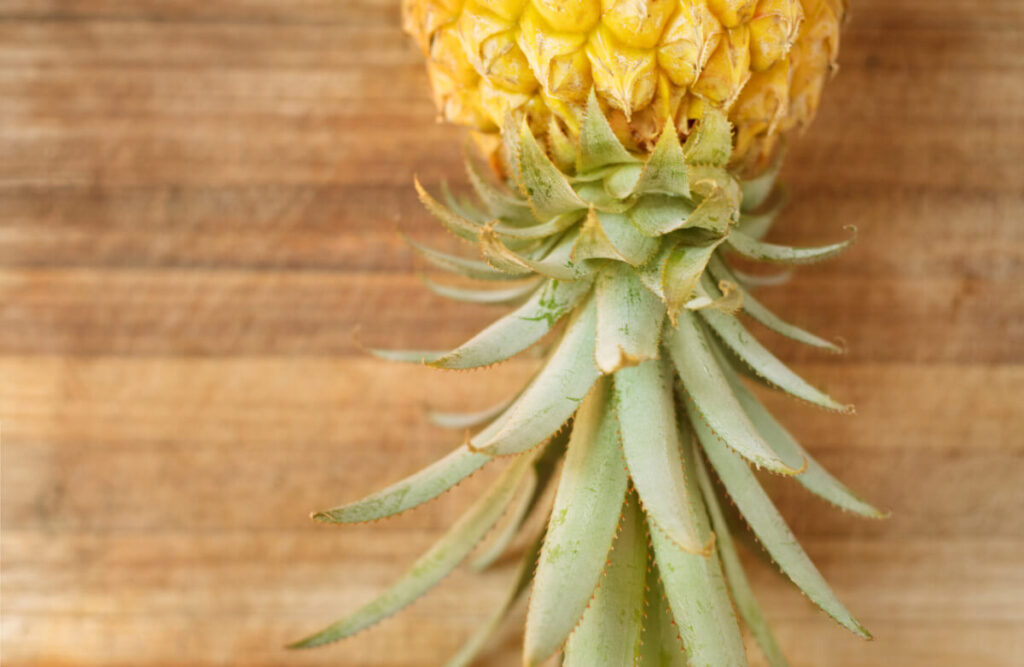If you notice the upside-down pineapple image on someone’s phone case, tote bag, or even car, You might think it’s just a cute fashion. However, it’s a symbol with an even deeper meaning. One which many TikTok users are sharing recently! There are many who wonder, “What is an upside-down pineapple’s meaning?”
Displaying or wearing upside-down fruit is similar to quoting lines from a movie that isn’t widely known in that other people see it as it is; there’s a common and shared understanding, even if it’s not in the minds of others.
For many, the upside-down pineapple seems to be just an odd fruit display; for others, it holds an entirely different significance.
What’s the purpose of upside-down pineapples?
Pineapples are an unintentional way for swingers to find one another. If you spot someone sporting an upside-down pin badge or pin, it indicates they’re looking for partners to swap. An upside-down pineapple in front of someone’s house can be interpreted as an invitation to attend the swinger’s celebration.
Before we begin to discuss how to avoid the pitfalls, use a more appropriate word for cruise ships swinging and whether pineapples can be a good indication, I’m not interested in that.

Introduction
We’ve investigated the background, history, and significance of the upside-down fruit and other symbols associated with the swinging community.
Our data comes from swingers’ forums, articles on research, and personal accounts of experiences with swingers.
Swinging, also called swapping spouses or partners, is the practice of couples in a committed relationship seeking a third party to participate in particular “bedroom”-related activities. The third party could be a couple or just a single person.
The link with upside-down pineapples and swingers has turned out to be an open secret on the internet, with various sources warning innocent parties about the meaning behind the symbol.
What are other symbols that can be used to describe swinging (and other non-monogamy forms)?
There’s a thing you should know about symbols generally, particularly when it comes to symbols belonging to the sexually positive community: they’re essential for communicating. The world is only beginning to make all sexualities acceptable and relationships. These symbols have been able to help – and continue to aid in bringing people closer even when they aren’t as open as they’d prefer.
In 2017 The New York Post published an article on the signs that your neighbor could be an alcoholic. The signs they identified included:
- A black ring on someone’s right hand
- having garden pampas grass outside your home

sporting an anklet with toe rings, as well as wearing a thumb ring, toe rings, and an anklet
- Switching your wedding ring from the right hand
- white landscaping rocks
- Pink or purple ornaments in the front yard
- And obviously, the upside-down pineapple door knocker.
- Origin
Language experts aren’t sure about the source of the phrase “upside-down pineapple.” However, many believe the phrase originated in the 1960s and the beginning of the swinging society during the sexual revolution of the time.
The people of the seventies were known to leave a pineapple upside down, resting on a building in front of their homes. This would suggest it was the time of year when a swingers ‘ party was taking place inside. Anyone looking for the location could find the location quickly after noticing the pineapples outside.
Do clothes that have Pineapples on them automatically identify someone who is a Swinger?
Swingers have adorned their clothes featuring pineapples to differentiate themselves from one another. Still, many people who wear pineapple-themed clothing are unaware of its association with the swinging community.
However, a hat, shirt, bikini, hat, or pair of swim trunks adorned with some upside-down pineapples is generally a pretty obvious sign that someone is active in the swinging crowd.
Love for Fruit and Nature
But why would anyone wish to hang upside-down pineapples? The upside-down pineapple decor is an incredibly new style. It’s generally utilized by people who wish to show their love for the fruit, but it also reflects its importance in nature.